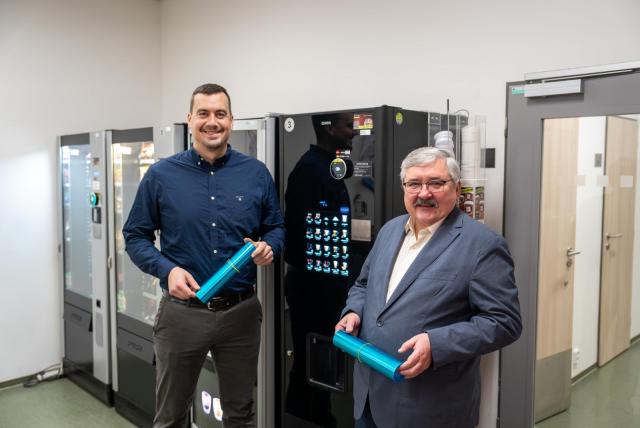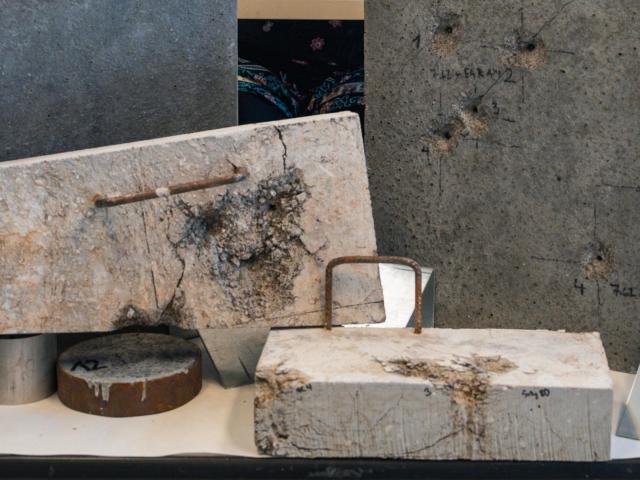top projects of science and research
Utilization of secondary raw material in geopolymers production – Geodust
Funding source: HORIZON 2020 - MSCA | Years of realization: 2017-2022
This project aimed to utilize kiln dust waste from cement production, focusing on its incorporation into alkali-activated systems for concrete manufacturing. The developed concretes comply with European industrial quality standards, promoting sustainability through effective recycling of kiln dust. The consortium included universities, research institutes, and industrial producers, with Brno University of Technology leading the project.

Demonstrative process for the production and chemical recycling of environmentally safe, superior bio-based packaging by plasma integration in the value chain; BioSupPack
Funding source: HORIZON 2020-Bio-based Industries (H2020-BBI) | Years of realization: 2021-2025
BioSupPack demonstrates microbial polyester (PHA) production from brewery waste and develops high-performance, bio-based packaging. Plasma technology enhances packaging properties and recyclability, establishing an environmentally sustainable, circular economy. The consortium involves 17 European partners with a key role by FCH BUT in production and recycling technologies.

Permanent protection of touch screens to prevent the deposition of organic pollutants on their surface
Funding source: the Technology Agency of the Czech Republic (TAČR) | Years of realization: 2021-2024
This project developed polymer coatings protecting public-use touchscreens from organic pollutants and microbes, enhancing hygiene. The LOTUS Foil, commercialized and patented internationally, was developed by FCH BUT in cooperation with FORTES Interactive, significantly advancing public health safety.

Means for ballistic protection enhancement of vehicles and critical infrastructure
Funding source: the Technology Agency of the Czech Republic (TAČR) | Years of realization: 2020-2024
Aimed at improving passive ballistic protection for critical infrastructure and military vehicles, this project developed advanced cementitious composites, ceramics, and hybrid laminates. Led by FCH BUT, it produced innovative protective panels using fibre cement composites, enhancing national security.

National Centre of Competence - Polymer Materials and Technologies for the 21st Century (POLY-ENVI21)
Funding source: Technology Agency of Czech Republic (TAČR) | Years of realization: 2023-2028
This National Centre of Competence project targets sustainable polymer technologies addressing environmental challenges. It includes polymer labelling for waste sorting, sludge processing, antimicrobial nanofibres, biodegradable fertilizers encapsulation, and polymer recycling, significantly contributing to sustainable industry practices. PolyEnvi21

National Centre of Competence - Future Electronics for Industry 4.0 and Medical 4.0 (FEIM)
Funding source: Technology Agency of Czech Republic (TAČR) | Years of realization: 2023-2028
FEIM focuses on intelligent electronics integration for Industry and Medical 4.0, enhancing sensor technologies and connectivity. FCH BUT leads the development of low-cost, sustainable printed touch screen sensors, promoting advanced digitization and sustainable manufacturing. FEIM

Biological functions and dynamics of PHA cycle in Rhodospirillum rubrum, as well as the related biotechnological consequences
Funding source: the Czech Science Foundation (GAČR) and Swizz Agency SNSF | Years of realization: 2021-2023
Investigating PHA metabolism in Rhodospirillum rubrum, this basic research explores the biological mechanisms and stress robustness linked to biopolyester production. Collaborations between Czech and Swiss researchers aim to advance fundamental science and potential biotechnological applications in sustainable plastics.

Molecular energy harvesting materials: towards breaking the limits
Funding source: the Czech Science Foundation (GAČR) | Years of realization: 2019-2021
The project focused on developing new chromophores for singlet fission, improving solar cell efficiencies beyond the conventional limits. Using quantum chemical calculations and organic synthesis, researchers produced stable, absorptive materials suitable for next-generation solar technologies.

Unravelling the role of polyhydroxyalkanoates in Schlegelella thermodepolymerans - a promising environmental bacterium for next generation biotechnology
Funding source: the Czech Science Foundation (GAČR) | Years of realization: 2022-2024
Studying this bacterium's PHA metabolism, the project explored stress resistance, polymer biodegradation, and biotransformation capabilities. Collaborative research developed metabolic models and genome-editing tools, setting a foundation for future biotechnological applications and sustainable materials.

Novel perovskites for hybrid photonic devices
Funding source: the Czech Science Foundation (GAČR) | Years of realization: 2019-2021
This research developed novel perovskite materials for hybrid photonic applications, focusing on stability and efficiency. Detailed studies on ionic and electronic processes informed the development of perovskite structures optimized for greater operational stability and enhanced performance in photonic devices.
